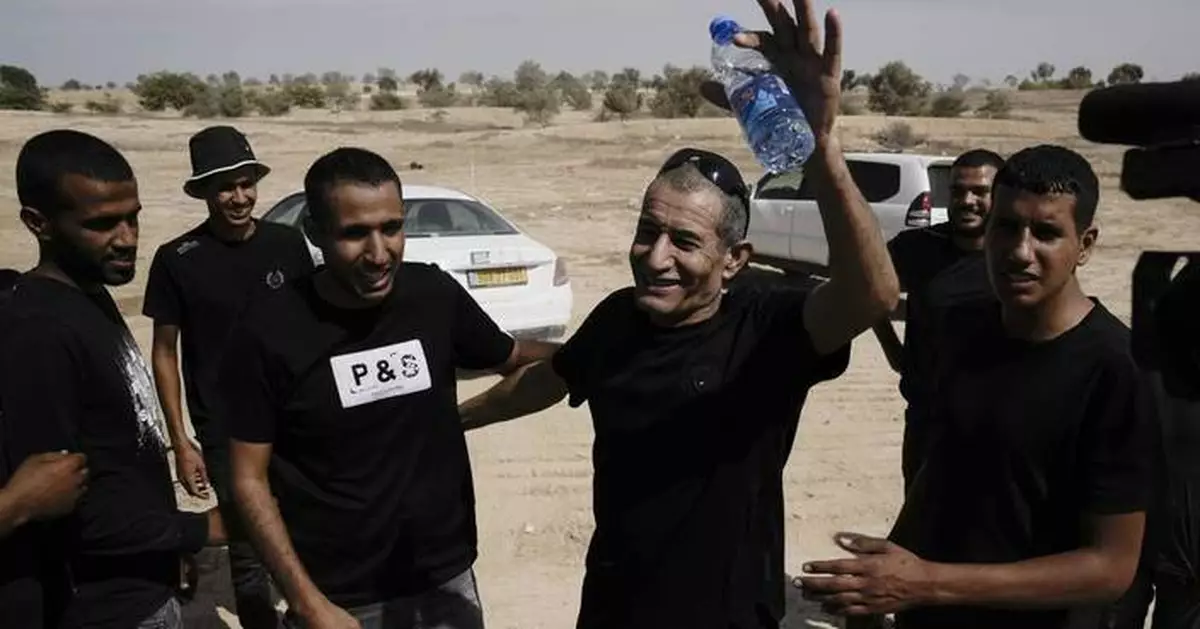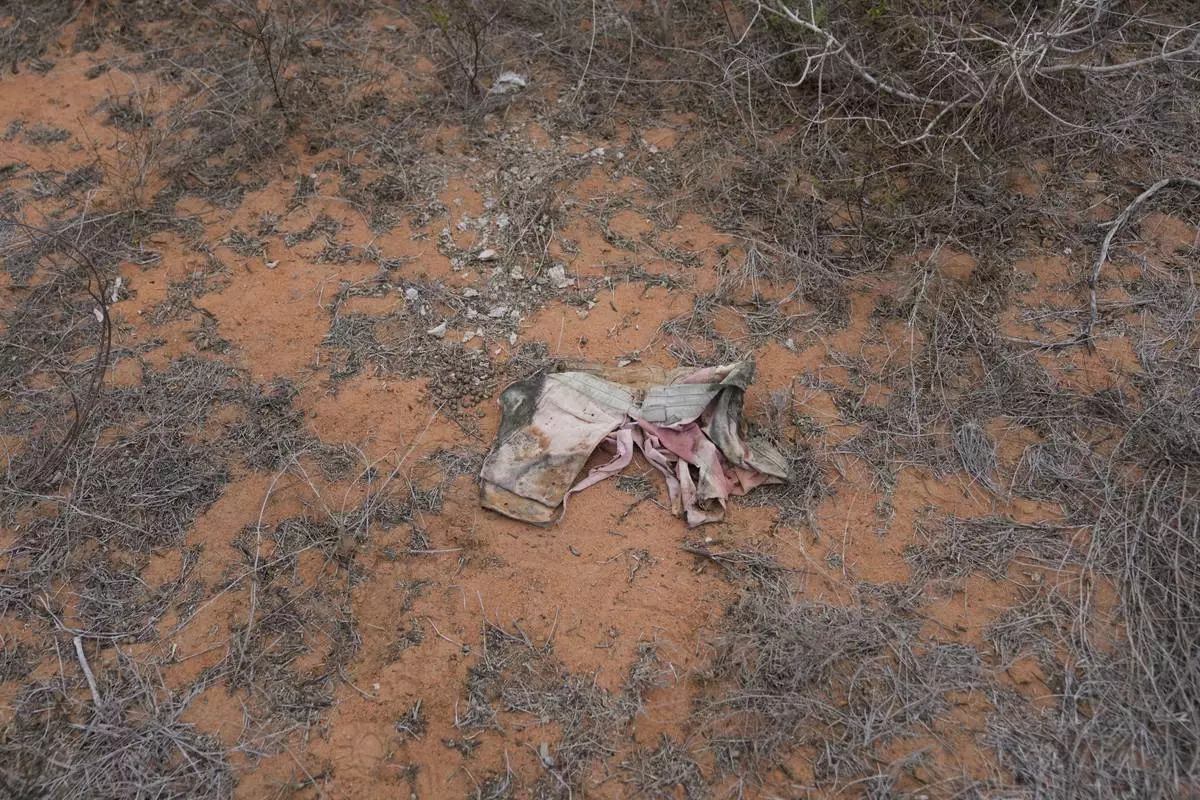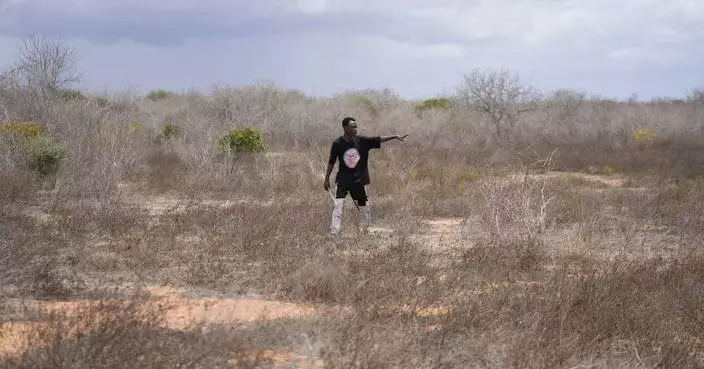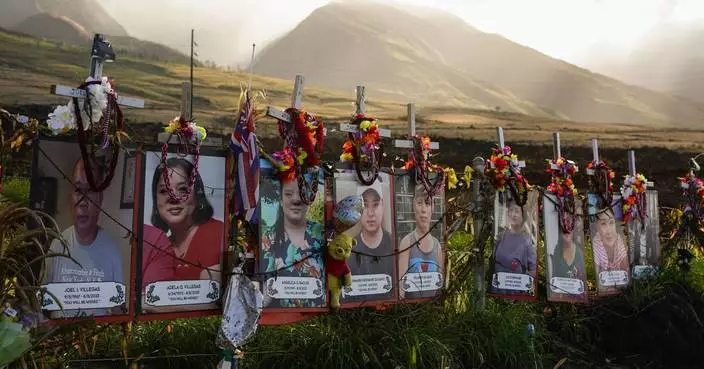KHIRBET KARKUR, Israel (AP) — An Israeli hostage rescued from Gaza returned to a hero’s welcome tinged with a bitter reality: Much of the small village he calls home, Khirbet Karkur, is targeted for demolition.
Qaid Farhad Alkadi, 52, is one of Israel’s roughly 300,000 Bedouin Arabs, a poor and traditionally nomadic minority that has a complicated relationship with the government and often faces discrimination. While they are Israeli citizens and some serve in the army, about a third of Bedouins, including Alkadi, live in villages the government considers illegal and wants to tear down.
Since November, about 70% of Khirbet Karkur residents have been told the government plans to raze their homes because they were built without permits in a “protected forest” not zoned for housing, according to a lawyer representing them. Alkadi’s family hasn’t received a notice, but the looming mass displacement of this close-knit community has cast a pall on what has otherwise been a joyous 24 hours.
“It’s so exciting, we didn’t know if he’ll come back alive or not,” said Muhammad Abu Tailakh, the head of Khirbet Karkur’s local council and a public health lecturer at Ben Gurion University in nearby Beersheba. “But the good news is also a bit complicated, because of everything that’s going on.”
Alkadi was greeted by dozens of well-wishers Wednesday – and a crush of media. He was released from the hospital and returned home a day after his dramatic rescue, which he recounted in appreciative phone calls with Israel’s prime minister and president.
Neighbors and family erected a huge tent in his honor, and served tea and coffee from the early morning as they eagerly awaited his arrival. When the clean-shaven but gaunt Alkadi arrived – seemingly overwhelmed by the attention after 326 days in captivity, some of it an underground tunnel – he spoke with reporters and pleaded with Israeli leaders to free all the hostages.
“It does not matter if they are Arab or Jewish, all have a family waiting for them,” said Alkadi, a father of 11 who was kidnapped by Hamas on Oct. 7 while working as a security guard at a packing plant near the Gaza border.
“They also want to feel the joy,” he said. “I hope, I pray an end to this.”
Alkadi was one of eight Bedouins abducted on Oct. 7, and three are believed to still be alive in captivity; two teenagers were released, one was accidentally killed by the Israeli army, and one declared dead is still in Gaza.
On Oct. 7, many Bedouins rushed to help attendees of an Israeli music festival, saving hundreds of lives at a time when the army and police were in disarray.
A spokesperson for the Israel Land Authority said that “in light of the situation” it would not serve a demolition notice to the Alkadi family. But it would not comment on the plight of his neighbors or their lawyers' efforts to save their homes.
On Wednesday, most family members and neighbors tried to focus on the good news, rather than legal fights that could drag on for years.
“We need that this problem be resolved so that people here ... receive an appropriate solution that fits the needs of the Bedouins," said Nasser Amran, 59, a friend of Alkadi. "There is no electricity. For water, they bring a pipe from some community, and it arrives here, but it is still difficult to live in a village without water and electricity the way it should be.”
Unrecognized villages are not connected to state water, sewage, or electricity infrastructure, and the roads to many, including Khirbet Karkur, are dusty and potholed. Khirbet Karkur is nestled in the shadow of a large dump, and the smell of rotting garbage drifts over the short, squat corrugated metal homes. Piles of construction debris and trash ring the small cluster of dwellings.
Israel’s Supreme Court has previously deemed many of the unrecognized Bedouin villages illegal, and the government has said they are trying to bring order to a lawless area and give a better quality of life to the impoverished minority.
For decades, Israel has been trying to convince scattered, off-the-grid Bedouin villagers that it is in their interest to move into government-designated Bedouin townships, where the government can provide them with water, electricity and schools. Bedouin leaders have rejected many proposals, saying they would destroy their lifestyle or send them to less desirable areas.
There have been 1,325 Bedouin homes demolished in the first six months of 2024, a 51% increase over the same period in 2022, according to the Negev Coexistence Forum for Civil Equality, which tracks demolitions in the Bedouin community.
The increase in demolitions has coincided with the ascendance of Prime Minister Benjamin Netanyahu's right-wing coalition. National Security Minister Itamar Ben-Gvir and other members of his party have consistently championed the demolition of illegal Bedouin construction in the Negev desert and Israeli-occupied West Bank.
Ben-Gvir last year traveled to witness a demolition himself, expressing “kudos” and calling the destruction “sacred work.”
Abu Tailkha says he and his neighbors want to maintain their rural lifestyle, and the government should officially recognize their villages. He said residents of Khirbet Karkur, who were placed there in the 1950s by the government, would be open to moving to another rural area, but not a city.
The government wants to move them north to Rahat, an urban Bedouin settlement of about 70,000, according to Netta Amar Shiff, a lawyer representing families who received demolition notices. She called it “disgusting cynicism” for the government to say it will not serve Alkadi's family with lawsuits.
“If there's a good reason for one person not to get the notice, there's a good reason for everyone,” she said.
Regavim, a right-wing group that studies land issues in Israel and supports the government’s relocation plan for Bedouins, said the Bedouin are being offered an excellent deal with free land, and it is in their interest to move in order to receive services that every Israeli citizen is entitled to receive.
“Israel can’t provide services to people who just build wherever they want,” said Naomi Kahn, the head of Regavim’s international division.
The unrecognized villages do not have adequate bomb shelters or a warning system in the case of incoming rockets, and at least 11 Bedouin have been killed by rockets fired into Israel since the war began.
“The entire country is in a war, and I also have to fight this demolition order,” said Abu Tailkha, the head of Khirbet Karkur's local council. “
Abu Tailkha said that while the country and its leaders were embracing Alkadi’s return, he isn’t optimistic real change will occur in their village.
“I think in a bit they will forget about Farhan, and they will send another round of demolition orders,” he said.
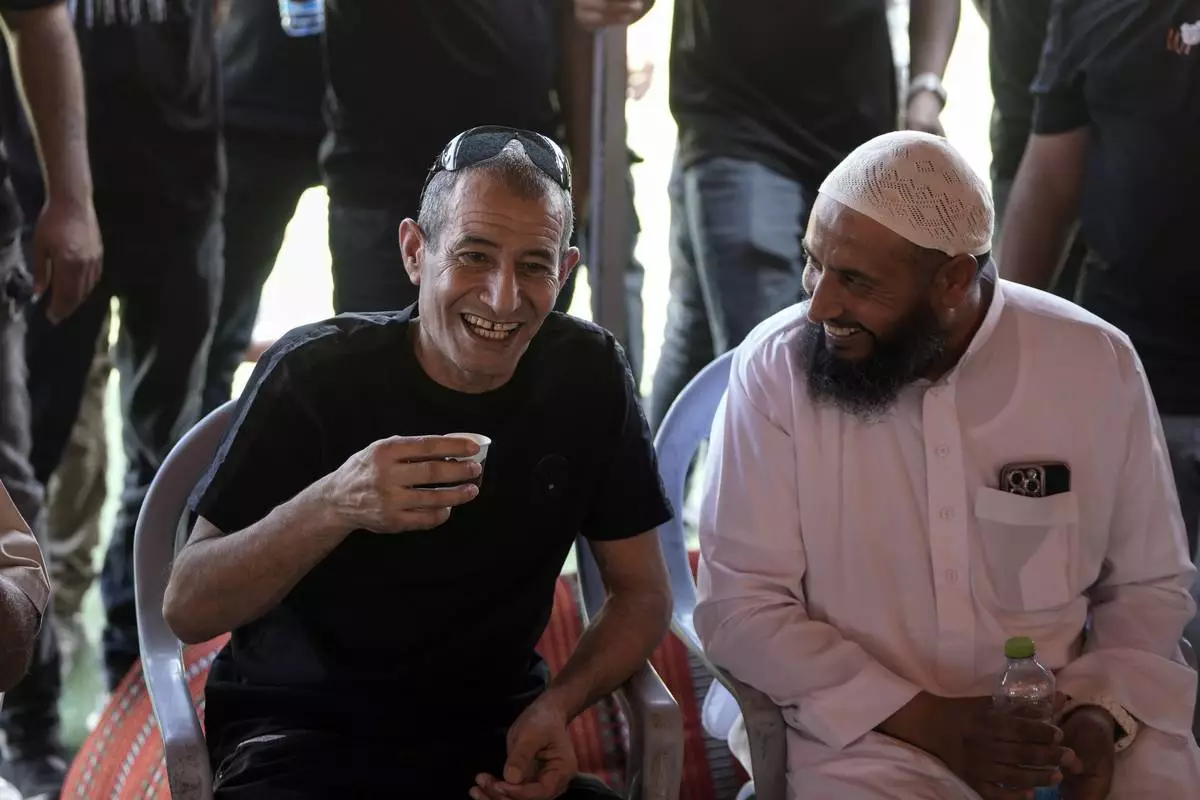
Qaid Farhan Alkadi, 52, who was held hostage by Hamas militants in Gaza Strip, drinks a coffee after arriving in the Khirbet Karkur village, near Rahat, southern Israel, Wednesday, Aug. 28, 2024. (AP Photo/Mahmoud Illean)
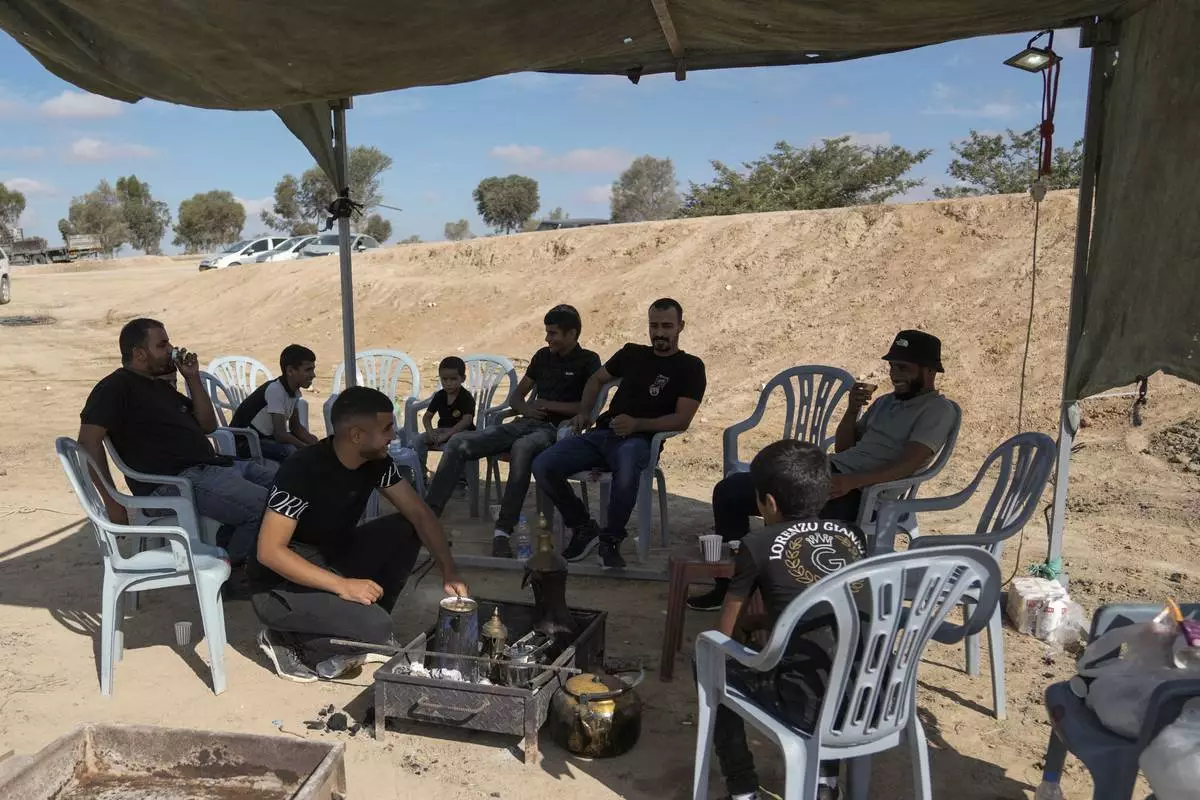
Relatives and friends of Qaid Farhan Alkadi, 52, who was held hostage by Hamas militants in Gaza Strip, wait for his arrival on an area in the Khirbet Karkur village, near Rahat, southern Israel, Wednesday, Aug. 28, 2024. (AP Photo/Mahmoud Illean)
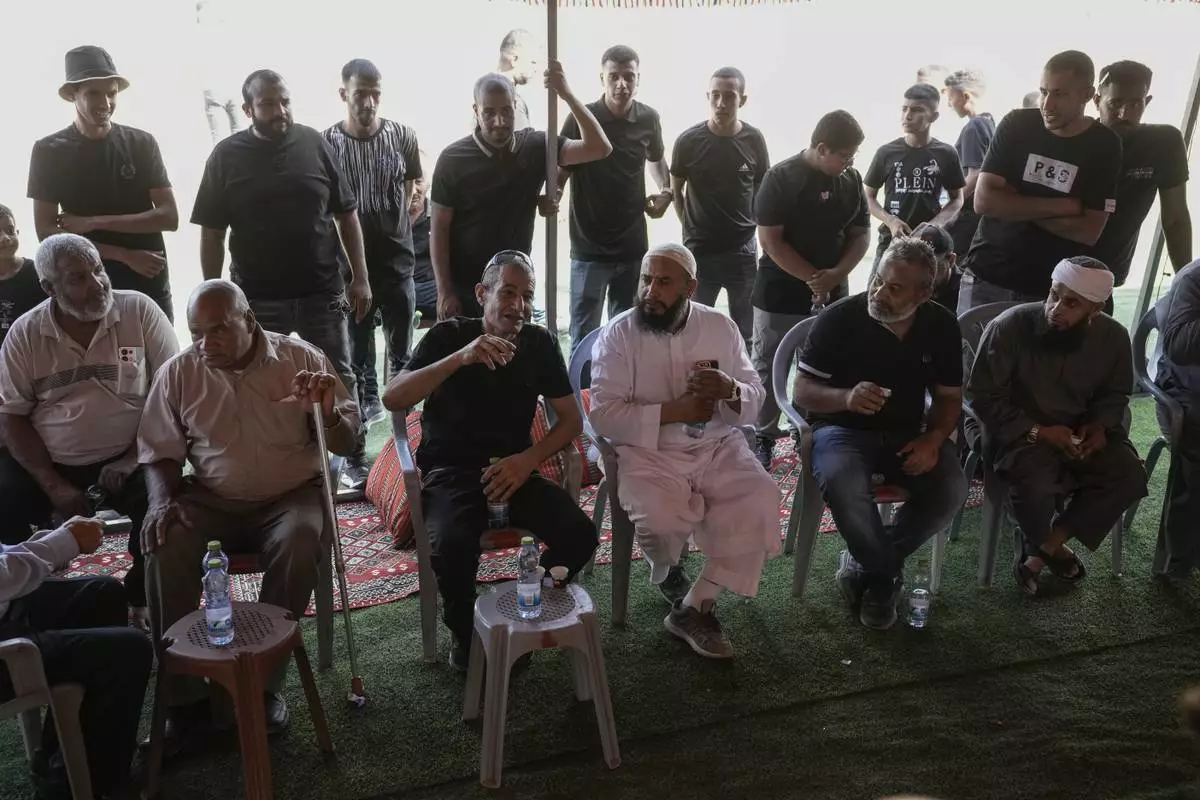
Qaid Farhan Alkadi, 52, 3rd left, who was held hostage by Hamas militants in Gaza Strip, meets his relatives and friends after arriving in the Khirbet Karkur village, near Rahat, southern Israel, Wednesday, Aug. 28, 2024. (AP Photo/Mahmoud Illean)
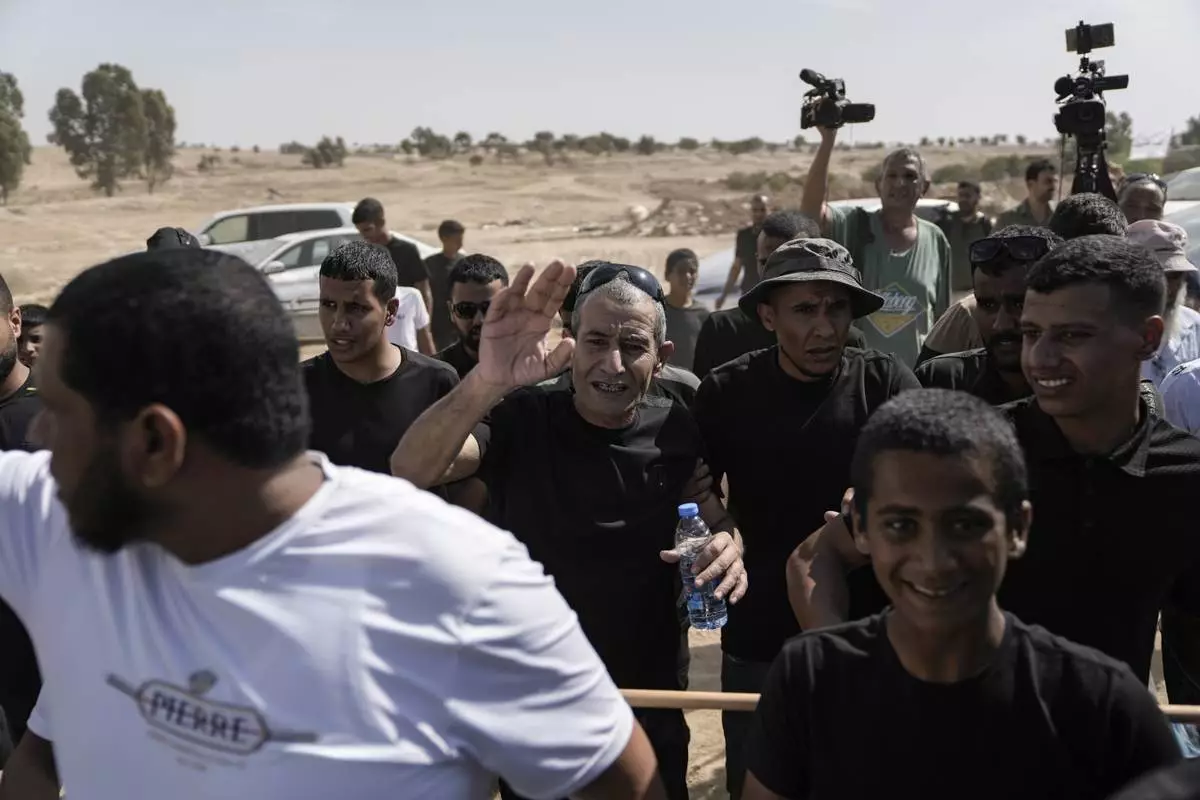
Qaid Farhan Alkadi, 52, center, who was held hostage by Hamas militants in Gaza Strip, meets his relatives and friends after arriving in the Khirbet Karkur village, near Rahat, southern Israel, Wednesday, Aug. 28, 2024. (AP Photo/Mahmoud Illean)
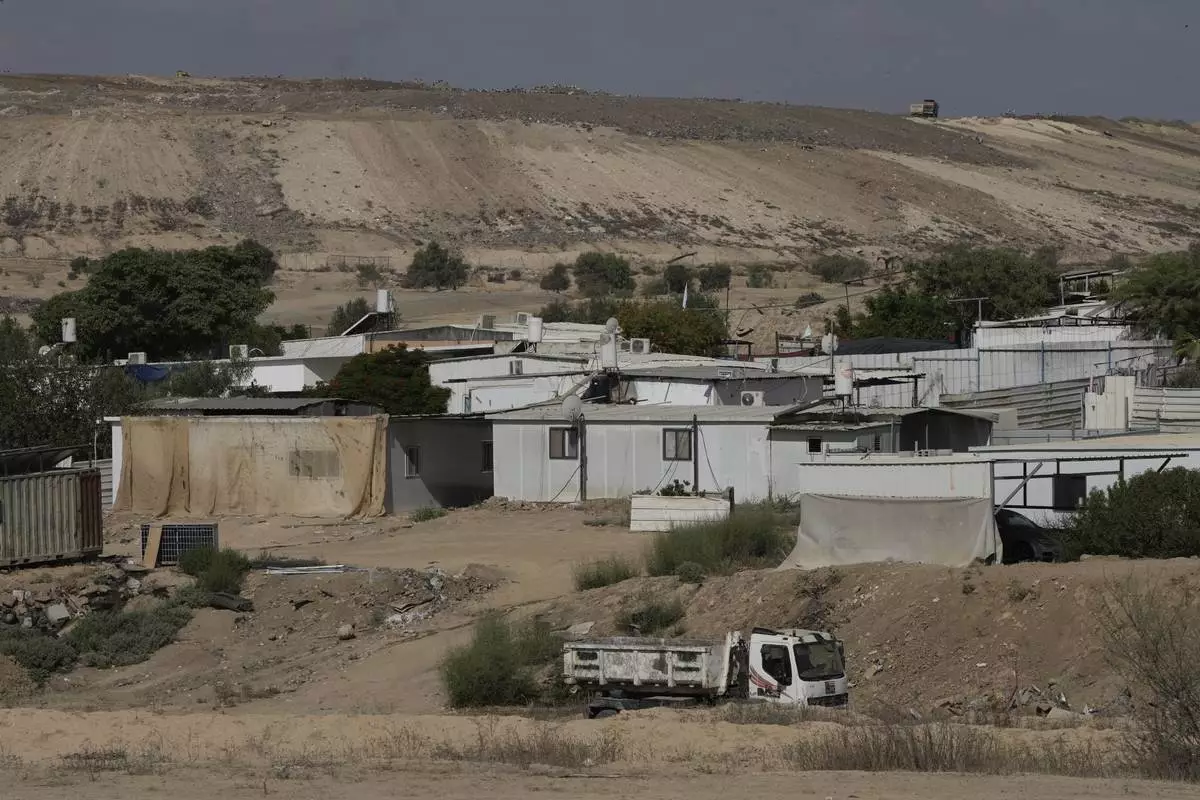
Houses of Bedouin families stand on area in the Negev desert next to a place where relatives and friends of Qaid Farhan Alkadi, 52, who was held hostage by Hamas militants in Gaza Strip, wait for his arrival in the Khirbet Karkur village, near Rahat, southern Israel, Wednesday, Aug. 28, 2024. (AP Photo/Mahmoud Illean)
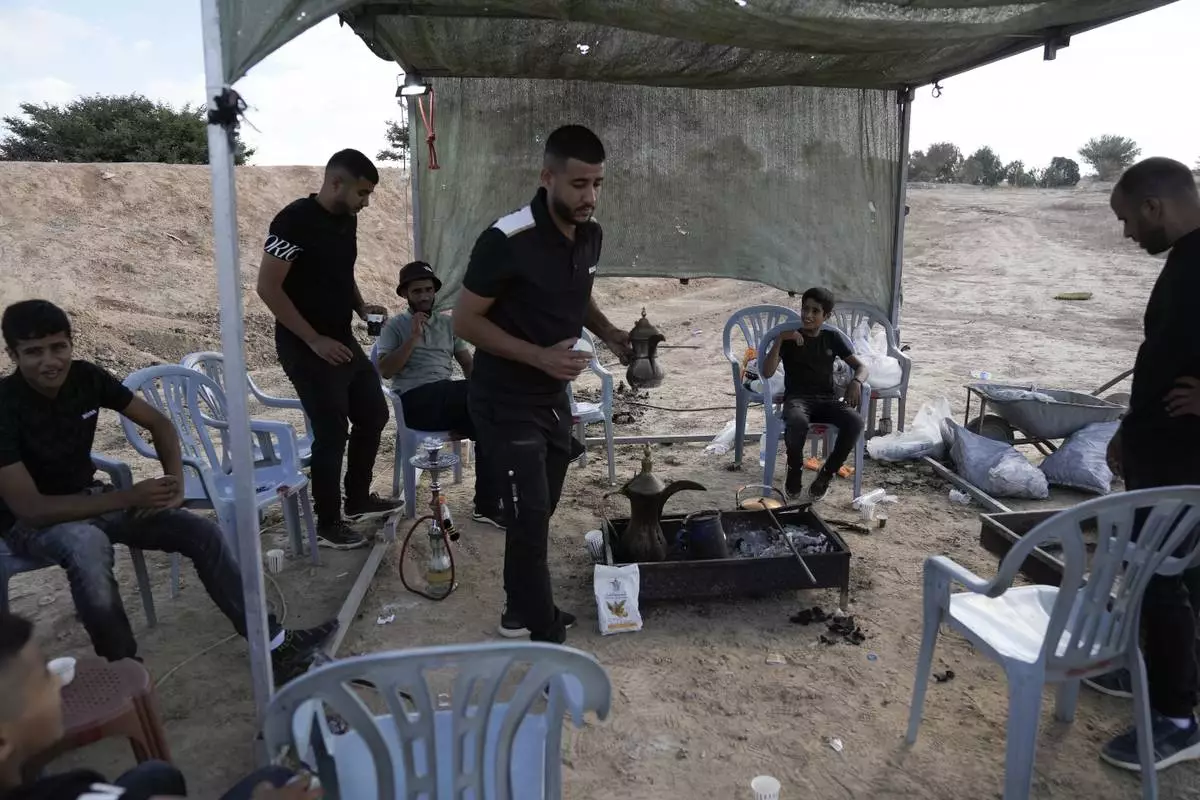
Relatives and friends of Qaid Farhan Alkadi, 52, who was held hostage by Hamas militants in Gaza Strip, wait for his arrival on an area in the Khirbet Karkur village, near Rahat, southern Israel, Wednesday, Aug. 28, 2024. (AP Photo/Mahmoud Illean)
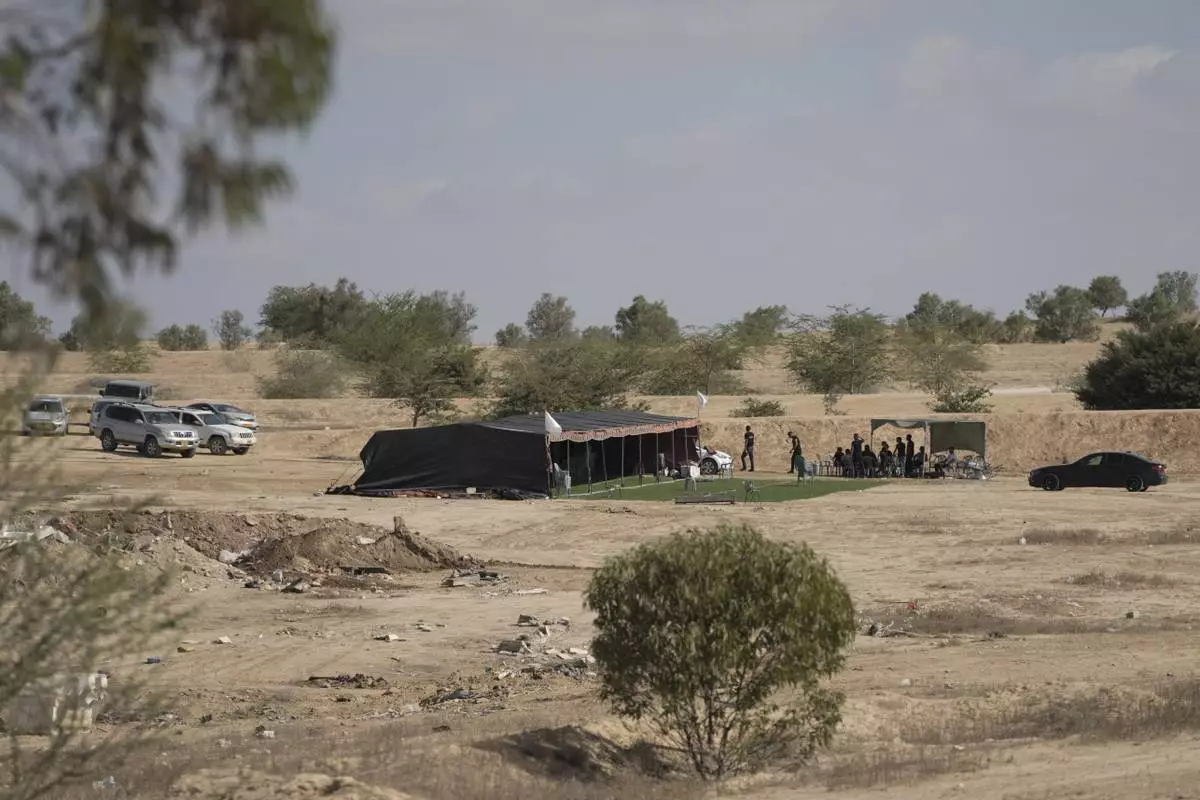
Relatives and friends of Qaid Farhan Alkadi, 52, who was held hostage by Hamas militants in Gaza Strip, wait for his arrival on an area in the Khirbet Karkur village, near Rahat, southern Israel, Wednesday, Aug. 28, 2024. (AP Photo/Mahmoud Illean)
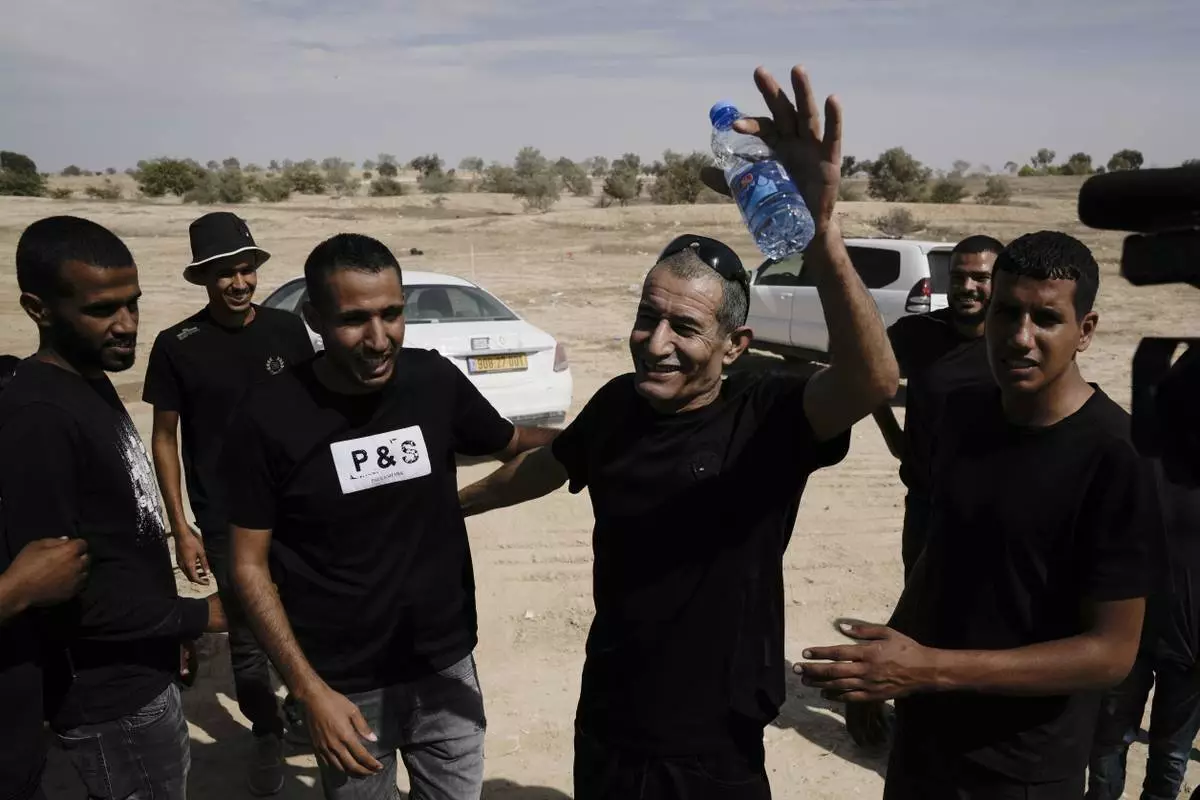
Qaid Farhan Alkadi, 52, who was held hostage by Hamas militants in Gaza Strip, meets his relatives and friends after arriving in the Khirbet Karkur village, near Rahat, southern Israel, Wednesday, Aug. 28, 2024. (AP Photo/Mahmoud Illean)


